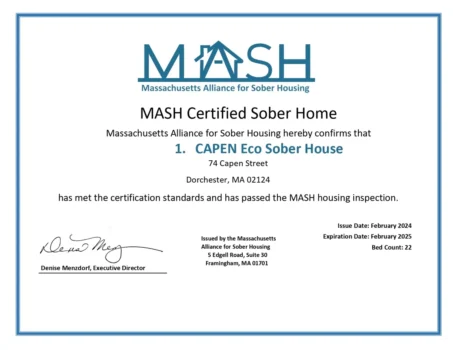
Section 1.1 outlined a number of direct and indirect mechanisms that describe how anger and related emotions may be related to alcohol consumption and relapse after alcohol dependence treatment. Initial support for alcohol-adapted anger management treatment suggests that clinicians and researchers may have an additional intervention to address anger-alcohol associations. Clinically, not all alcohol-involved clients accept the philosophies and approaches of AA and other mutual-help groups. AM may be a particularly relevant tool for such anger- and alcohol-involved clients. Also, it may be important to consider alcohol-adapted anger management treatment primarily for combined anger- and alcohol-involved clients, as these were the clients eligible for the present study.
Clarifying the distinctions between these emotional responses
Challenges to treatment fidelity such as a Rosenthal Effect and non-adherence to the treatment protocol cannot be ruled out. Future research should incorporate stringent treatment fidelity methodology in order alcoholic rage syndrome to document adherence to protocol. Anyone who feels overwhelmed, out of control, or like they may benefit from learning how to better manage their anger should seek help from a mental health provider.
- For healthcare professionals who are not mental health or addiction specialists, the following descriptions aim to increase awareness of signs of co-occurring psychiatric disorders that may require attention and, often, referral to a specialist.
- This theory states that alcohol decreases a person’s ability to focus, causing them to only hear and notice certain things.
- Plummeting serotonin levels hinder the brain’s ability to regulate anger and are linked to impulsive aggression (5).
- Among the many studied physiological and behavioral effects of alcohol is disinhibition, or reduced control over impulses or urges after intoxication.
Attention deficit hyperactivity disorder

Similarly, in nearly 40% of violent incidents, surveyed individuals from the United Kingdom said they believed their perpetrator was under the influence of alcohol. While drinking alcohol isn’t the sole reason for assault, it plays a substantial role in whether someone commits a violent crime. An aggressive drunk may make poor decisions that lead to worse scenarios. Since your judgment becomes clouded when you’re intoxicated, a simple misunderstanding can quickly turn into a bar fight.
- A healthy amount of serotonin means our reactions to perceived threats will likely be logical – like our tension when a car cuts us off on the freeway.
- Fortunately, people who become irrationally mad when drunk can work to prevent and treat their behavior.
- Consistent with our previous work (Walitzer et al., 2009), we hypothesized that AA Facilitation treatment would lead to greater AA involvement, and increased AA involvement would predict improved drinking outcomes among these clients.
- In stark comparison, probability of marital aggression among those low on alcohol dependence was not influenced by hostility (.01 probability).
- We don’t want you to face uncontrolled anger or alcohol use disorder alone – we want to help.
- Stigma can be reduced with normalization statements such as “Many people try (cannabis or painkillers in ways that are not prescribed) at some point in their lives; is that something you have tried?
- If no one can defuse the tension, they may become an aggressor, escalating the situation to a violent one.
Increased likelihood of expressing anger while intoxicated
Family therapy addresses familial dynamics and relationships, fostering support networks and promoting open communication. Psychodynamic approaches delve into underlying emotional conflicts and unresolved traumas, offering insight and resolution. Cognitive Behavioral Therapy (CBT) interventions are widely recognized as practical approaches for both alcohol recovery and anger management. While verbal outbursts can be distressing, they may not necessarily escalate to physical violence. However, it’s crucial to remain vigilant and attentive to signs of escalating aggression.
If You Know You’re an Angry Drunk, What Can You Do?
Anger itself isn’t considered a disorder, but anger is a known symptom of several mental health conditions. A 2013 study published in the National Library of Medicine found that alcohol has both acute and chronic adverse effects on learning-related plasticity across brain regions, which contributes to cognitive dysfunction and even disability. In other words, long-term anger management is borderline impossible when someone is drinking regularly or in excess. If your behavior fits the description of an angry drunk, it may be difficult to admit you behaved that way under the influence. Many people whose behavior changes drastically with drinking have a hard time believing it when they’re sober. But the best choice for you and the people around you is to enter treatment and work to become a better person.

If your pattern of drinking results in repeated significant distress and problems functioning in your daily life, you likely have alcohol use disorder. However, even a mild disorder can escalate and lead to serious problems, so early treatment is important. A mental health professional can help determine https://ecosoberhouse.com/ if you have an underlying mental health condition that may be causing your anger issues. Alcohol is a contributing factor in approximately half of all violent crimes committed worldwide. Obsessive-compulsive disorder (OCD) is a mental health disorder involving obsessive thoughts and compulsive behavior.
The Link Between Alcohol and Aggression
Alcohol had minimal impact on aggression for those who thought about future consequences. “Later on in the night, you may find someone crying or becoming overly emotional, and this is because, as the alcohol wears off, there is a big drop in serotonin below baseline,” Tietz explains. This impact can begin to take place after just one drink, depending on the person and other factors, he adds (2).
People who tend to ignore the future consequences of their behavior, or score low on the Consideration of Future Consequences (CFC) scale, have been found to display more aggression. Anger is an intense emotion you feel when something has gone wrong or someone has wronged you. Aggression refers to a range of behaviors that can result in both physical and psychological harm to yourself, others, or objects in the environment.


Deja tu comentario